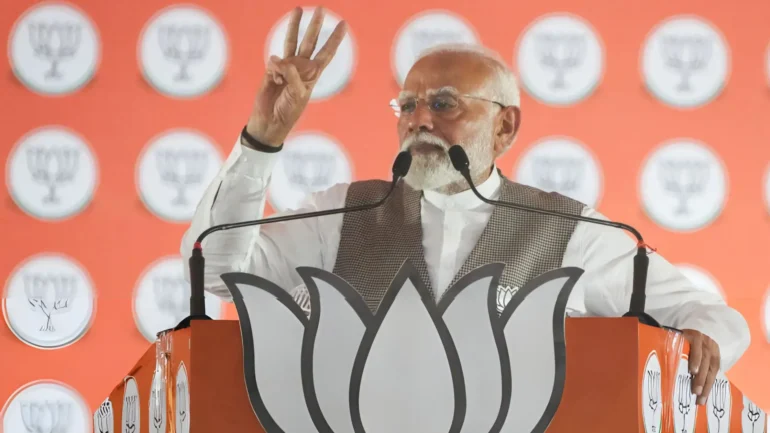As India’s 2024 general elections approach, a plethora of speculations and predictions have emerged regarding the potential outcome of the electoral process. Narendra Modi, the incumbent Prime Minister of India, is seeking a third term in office under the banner of the Bharatiya Janata Party (BJP). This article aims to provide a comprehensive analysis of the current political landscape, assessing the factors that could influence the election results and contribute to a possible Modi 3.0.
Modi’s Performance and Public Perception
Narendra Modi has been at the helm of India’s government since 2014, and his tenure has been marked by both praise and criticism. His administration’s performance has been endorsed by a significant portion of the electorate, with 58.7% expressing satisfaction or very high satisfaction in a recent survey. This approval rating, albeit lower than its peak, remains a positive indicator for Modi’s re-election prospects.
The Modi government’s handling of the COVID-19 pandemic has also earned it accolades, with many citizens appreciating the government’s swift response and crisis management. However, the pandemic’s economic repercussions have led to dissatisfaction among some sections of the population, particularly the youth, who are concerned about employment opportunities and economic growth.
Modi’s Achievements and Promises
Narendra Modi’s government has made several notable achievements during its tenure, including the implementation of welfare programs, infrastructure development, and digitization initiatives. These accomplishments have resonated with a large segment of the populace, and the BJP is likely to leverage them in its election campaign.
One of Modi’s key promises is to make India the world’s third-largest economy. This ambitious goal has garnered support from many voters, who believe that a strong economy is crucial for India’s development and global standing. However, critics argue that the government has not done enough to address issues such as income inequality, poverty, and job creation.
The Opposition and Anti-Incumbency Factors
The Indian National Congress (INC) and other opposition parties have been vocal in their criticism of the Modi government, citing issues such as economic slowdown, rising unemployment, and religious polarization. The opposition has also accused the BJP of undermining democratic institutions and suppressing dissent.
Anti-incumbency sentiment, which often works against ruling parties in Indian elections, could potentially impact the BJP’s performance. However, Modi’s strong personal appeal and the BJP’s formidable organizational structure may help mitigate this factor.
Regional Alliances and State-level Politics
Regional alliances and state-level politics play a significant role in determining the outcome of Indian elections. The BJP has traditionally been strong in the northern and western states of India, while the INC and other regional parties have dominated the southern and eastern regions.
In the run-up to the 2024 elections, both the BJP and the opposition parties have been working towards forging alliances with regional parties to bolster their prospects. The success of these alliances could have a substantial impact on the election results.
International Relations and Foreign Policy
Narendra Modi’s foreign policy has been characterized by a focus on strengthening India’s international relations, particularly with the United States, Japan, and other major powers. His administration’s handling of Pakistan and China has also been praised by many citizens.
However, critics argue that the BJP’s foreign policy has not adequately addressed India’s pressing concerns, such as border disputes with China and Pakistan, and the issue of cross-border terrorism. The opposition parties may seek to capitalize on these perceived shortcomings in their election campaigns.
Conclusion
As the 2024 general elections approach, the political landscape in India remains dynamic and complex. Narendra Modi’s BJP is seeking a third term in office, buoyed by its achievements, promises, and the Prime Minister’s personal appeal. However, the opposition parties are also gearing up to challenge the incumbent government, highlighting its perceived failures and shortcomings.
A comprehensive analysis of the various factors influencing the election results suggests that a Modi 3.0 is a distinct possibility. However, the outcome will ultimately be determined by the collective will of the Indian electorate, who will have the final say in shaping the future of their nation.

